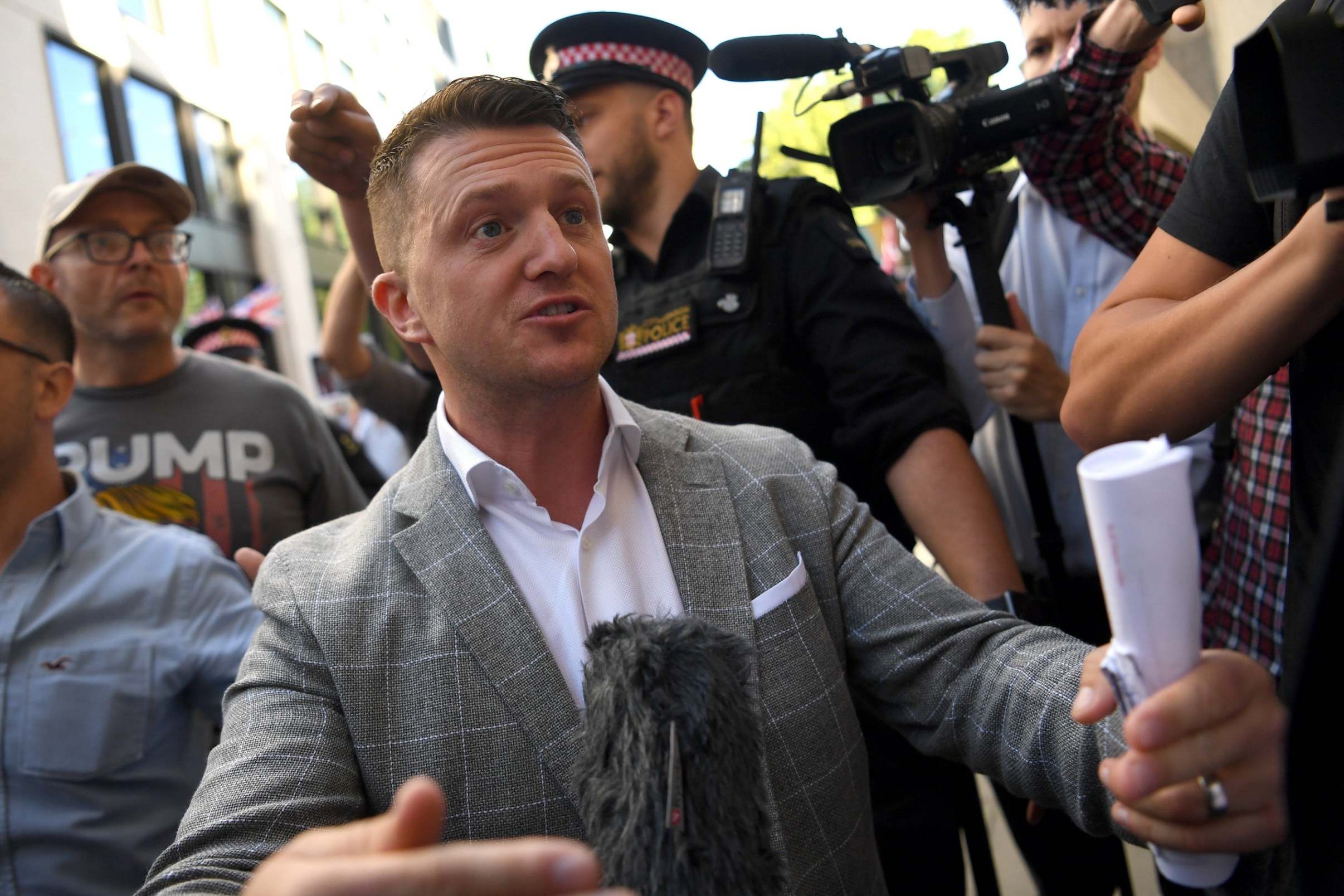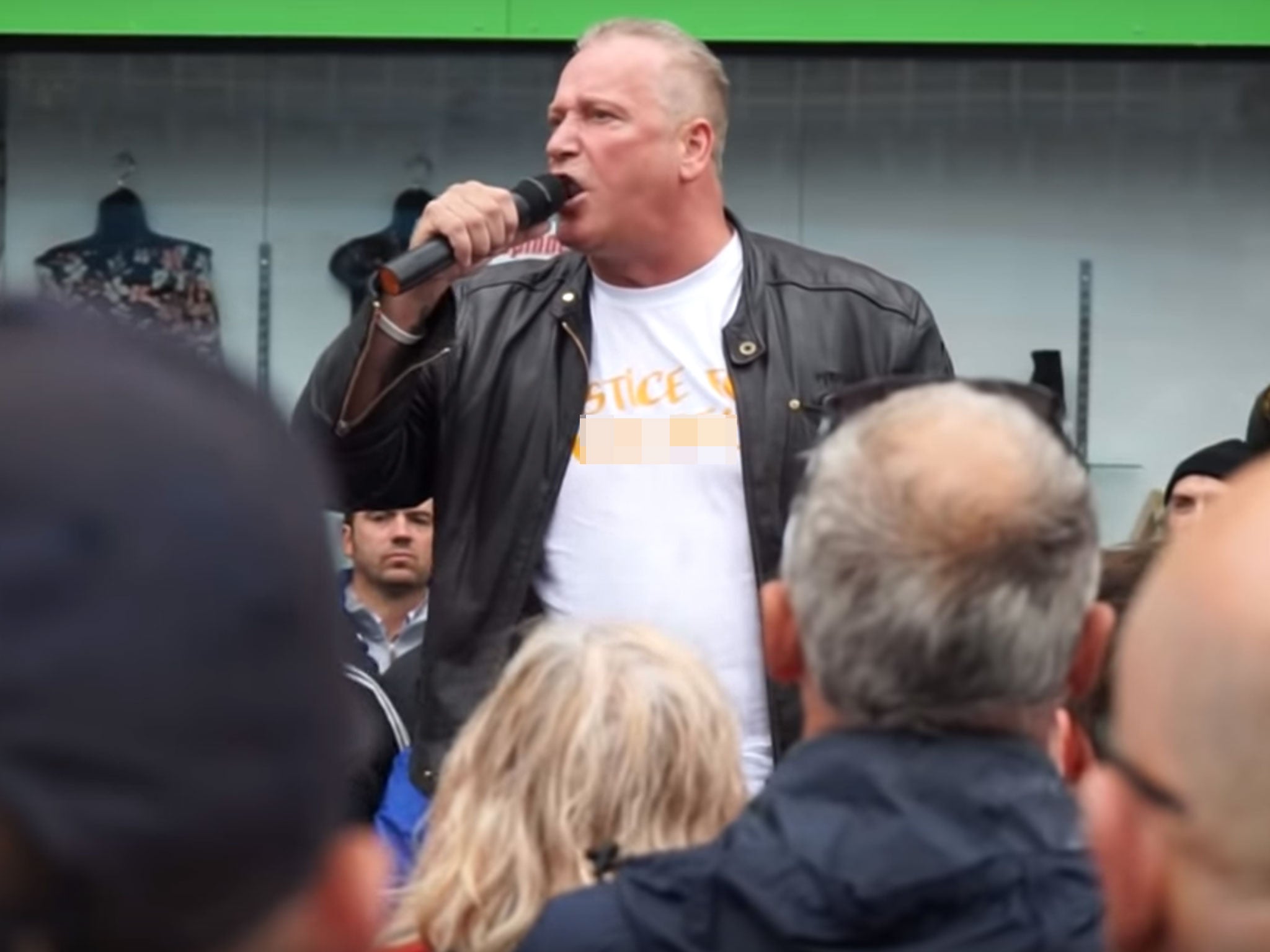Far right poses as protectors of women to target Muslims, official extremism report finds
Exclusive: Commission for Countering Extremism warns groups are ‘distorting truth’ to spread hate

Your support helps us to tell the story
From reproductive rights to climate change to Big Tech, The Independent is on the ground when the story is developing. Whether it's investigating the financials of Elon Musk's pro-Trump PAC or producing our latest documentary, 'The A Word', which shines a light on the American women fighting for reproductive rights, we know how important it is to parse out the facts from the messaging.
At such a critical moment in US history, we need reporters on the ground. Your donation allows us to keep sending journalists to speak to both sides of the story.
The Independent is trusted by Americans across the entire political spectrum. And unlike many other quality news outlets, we choose not to lock Americans out of our reporting and analysis with paywalls. We believe quality journalism should be available to everyone, paid for by those who can afford it.
Your support makes all the difference.Far-right activists are exploiting concerns about the safety of women and children to target Muslims and ethnic minorities, an official report has found.
The Commission for Countering Extremism said some groups “deliberately distort the truth to persuade their audience to adopt discriminatory and hateful attitudes”.
The government agency’s first major report, seen exclusively ahead of its release by The Independent, warned that the tactic was drawing in white communities who would not normally support the far right, and worsening social division.
As part of research into all forms of extremism across Britain, the commission examined a series of protests sparked after a woman claimed she was gang raped by Middle Eastern migrants in Sunderland.
The report said prominent far-right figures including Tommy Robinson, Jayda Fransen and former Ukip leadership candidate Anne Marie Waters used rallies in 2016 and 2017 to “spread anti-minority and anti-Muslim agendas”.
“The marchers said they aimed to improve the safety of women and children locally,” the report said.
“However, their rhetoric targeted ethnic minorities, despite nearly 85 per cent of people convicted of sexual offences in 2018 in the Northumbria Police force area being white.”
Robinson started an online petition with more than 100,000 signatures, and funded a large advertising board and legal support for the complainant via online donations.
Emails were sent to Robinson’s supporters calling for them to join angry “justice” demonstrations that drew 1,000-strong crowds, including an email that was screengrabbed by the Finsbury Park terrorist Darren Osborne.
Local councillors said a string of 13 marches in as many months “whipped up anti-minority feeling” and were linked to a series of hate crimes including a violent attack on Asian men, vandalism and racist graffiti in the area.
The Commission for Countering Extremism said: “Many protesters were not motivated by hate; they had concerns about their safety and the safety of those in the community.
“Far-right agitators exploited these local grievances. Members of the movement had links to banned group National Action. The shared belief of these figures and groups was their antipathy towards minorities, immigrants and particularly Muslims.”
A similar pattern has been seen with the use of grooming gangs as a major far-right recruiting tool, which sees extremists characterise the abuse as committed solely by Muslims.
One of the leading organisers of the Sunderland protests, former English Defence League member Billy Charlton, was jailed for 21 months for inciting racial hatred with his speeches.
The 55-year-old repeatedly suggested that all immigrants were rapists, shouting: “These people turn up and are raping our children and we need to hold somebody responsible for it … get them off our kids, get them off our streets, get them off our island.”
Robinson also gave speeches at the rallies, where crowd members shouted “f*** Islam”, and broadcast the footage via a Canadian website.
The government report said locals who opposed the demonstrations were abused and intimidated, including a Muslim counter-protester who was labelled a “paedo” and received death threats after his personal details were published online.
The original rape allegations were investigated by police but did not result in any charges, and the alleged victim withdrew her support from the campaign in her name in October 2017.
Two men were later convicted for an unrelated attack in which they raped a woman in their asylum-seeker hostel.
The commission said small-scale protests have continued in Sunderland, including in relation to Brexit and the imprisonment of Robinson for contempt of court, but external far-right influence had been reduced by Sunderland council and police.
Officials held public meetings to counter misinformation and address local concerns about the placement of asylum seekers, while drawing up an agreement to reduce the “volatility” of protests.
Graeme Miller, the leader of Sunderland City Council, said similar issues had affected “many UK communities”
“Here in Sunderland and the North East we have a long history of welcoming refugees, and of asylum seekers and communities living and working together,” he added.

“But what we have seen in the last few years is a rise in the number of far-right extremist groups from outside of the city, targeting, exploiting and intimidating residents in an attempt to inflame tensions and create divisions where these don’t exist.”
Mr Miller said many local residents “felt intimidated” by the protests and businesses lost trade as people avoided the city centre.
“These far right groups don’t have Sunderland or our residents at heart,” he added. “Their only interest is in serving their own agenda.”
The Commission for Countering Extremism said authorities in Sunderland received no support from central government during the protests, which were amplified by right-wing extremists around the world.
Its report found that, overall, the government’s response to extremism that falls short of terrorism was “slow and unfocused”.
The agency’s nationwide inquiry, launched after the 2017 terror attacks, found authorities were failing to spot local tensions being exploited, not protecting victims, and were failing to “challenge the persistent behaviour of hateful extremists who seek to mainstream their dangerous propaganda”.
Lead commissioner Sara Khan said “hateful extremism” was allowing people to make the “moral case for violence” while stopping short the threshold for criminal prosecution.
“From inspiring terrorist attacks, to hateful extremist groups engaging in persistent hostility, we are grappling with what is a global challenge,” she added.
“If we are to be successful in reducing the extremist threat in our country, we must focus on challenging hateful extremism. My report shows the destructive effect it is having on the lives of individuals, our communities and wider society.”
Ms Khan called for an urgent overhaul of the government’s “insufficient” strategy, based on a new definition of hateful extremism that would give the public and authorities the confidence to challenge it.
Join our commenting forum
Join thought-provoking conversations, follow other Independent readers and see their replies
Comments